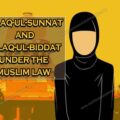
The Court said that while Muslim women have the absolute right to pronounce unilateral divorce through Khula under the Muslim personal law, the same can be exercised only through a statutory court.
In the case of Mohammed Rafi v The State, the Madras High Court held that a Muslim woman has the inherent right to seek dissolution of her marriage through the means of Khula, as per the provisions of the Muslim Personal Law. However, it was emphasized that such a divorce decree can only be granted by a competent family court and not by any private or extralegal entities such as a Shariat Council, which only serves as a representative of a portion of the community.
On January 11th, the Madras High Court rendered a decision in which Justice C Sarvanan declared null and void a Khula certificate that was granted to a woman in 2017 by a Shariat Council registered under the Tamil Nadu Societies Registration Act of 1975.
“While it is open for a Muslim Woman to exercise her inalienable rights to dissolve the marriage by Khula recognized under the Muslim Personal Law (Shariat) Application Act, 1937 by approaching a Family Court, it cannot be before a self declared body consisting of few members of Jamath,” the High Court said.
In the case at hand, the petitioner-husband advanced the argument that extrajudicial decrees, such as a fatwa or a Khula certificate, lack legal validity and cannot be enforced by any private individuals or entities. On the other hand, counsel for the Shariat Council cited a 2020 ruling by the Kerala High Court, which upheld a Muslim woman’s right to initiate the extralegal divorce proceedings of Khula.
The Shariat Council contended that in accordance with the Kerala High Court ruling, the present writ petition was not legally tenable. However, the Madras High Court pointed out that the Kerala High Court decision only recognized a Muslim woman’s right to initiate a unilateral divorce through Khula, and did not endorse the involvement of private entities such as the Shariat Council.
“The Courts are empowered under Section 7(1)(b) of the Family Courts Act, 1984 read with Section 2 of the Dissolution of Muslim Marriages Act, 1939 and Section 2 of the Muslim Personal Law (Shariat) Application Act, 1937 to pass a decree to dissolve a marriage. The private bodies such as the Shariat Council, the second respondent herein cannot pronounce or certify dissolution of marriage by Khula. They are not Courts or Arbitrators of disputes. The Courts have also frowned upon such practice as mentioned above,” the Madras High Court said.
Consequently, the Madras High Court nullified the Khula Certificate and instructed the petitioner-husband and his estranged wife to seek resolution of their dispute through the Tamil Nadu Legal Services Authority or a competent family court.
Advocate R Abdul Mubeen appeared for the petitioner husband.
Special Government Pleader S Ravikumar appeared for the TN government.
M/s J Antony Jesus appeared for the Shariat Council.





